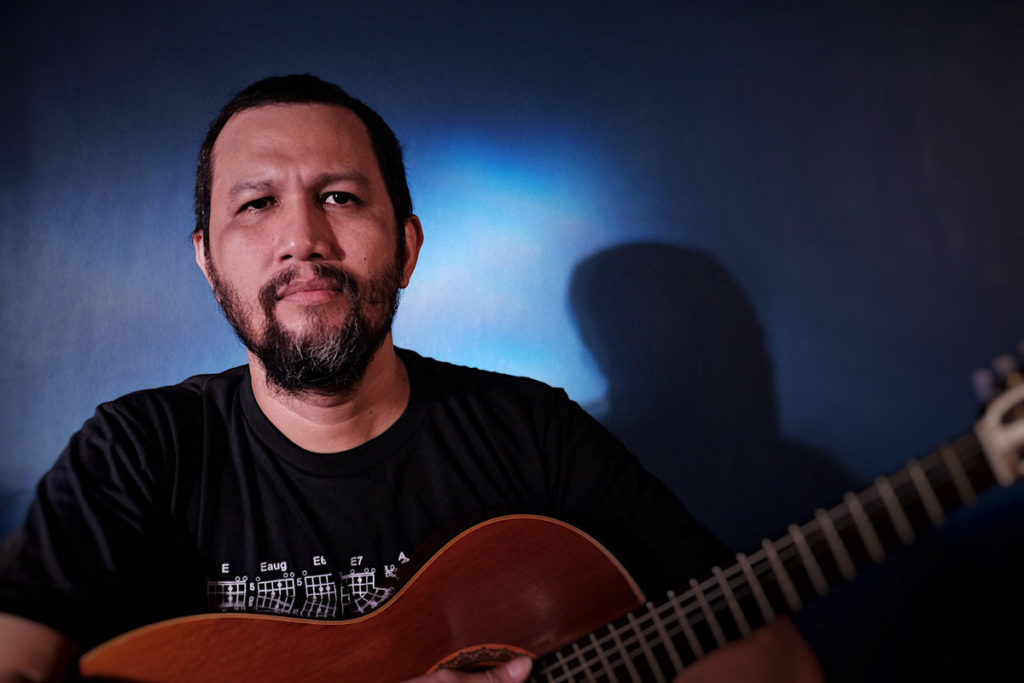Filipino musician, Johnoy Danao took to Facebook to call out videographers who use his songs in their videos, without his permission. Johnoy Danao is a successful singer-songwriter, having recently released a new single called Bright Like the Sun just last month.
On Facebook, Danao denounces same day edits and wedding highlight videos wherein his music is embedded without his consent. He states this it is a “false notion that it’s acceptable for videographers to use my songs for their published videos, without my permission” adding that “Kung ‘di ko pa nakita by accident, o dahil may nag-tag, ‘di ko pa malalaman”
Danao expresses his displeasure at this disrespect saying that “Some do not even have the decency to properly attribute my work. Buong kanta pa ang ginamit na soundtrack! Aba.” He reminds readers that using the intellectual property of someone else, for profit, and without their knowledge, is an act of copyright infringement. But Danao goes past the law and calls out for common courtesy, asking people for the proper respect that he and his work deserve.
“Nevermind the fact that doing so is copyright infringement. All I’m asking is common courtesy, and respect for the ownership of my work. Kung stock music nga, nagbabayad pa kayo eh.”
In all-caps, Danao made sure to clarify that he does not allow the use of his songs “for profit-oriented purposes” without his permission. He adds that “all licensing inquiries should be coursed through any of the contact details posted on my social media accounts.”
Majority of the comments under the post express their support for Johnoy Danao. Some users comment on how easy it is to simply message the musician and seek permission to use his songs. Others expressed the importance of giving content creators their due recognition.
You may sometimes hear your favorite Youtubers stopping themselves from singing too much of a popular song for fear of “being demonetized due to copyright”. But what even is copyright, and how is it protected here in the Philippines?
Copyright, in general, refers to the assortment of rights that a creator and/or owner of an artistic or literary work are able to exercise. Within Philippine law, both published and non-published intellectual work, created within the literary and artistic domains, are copyrightable. All copyrightable works are protected from the moment of their conception.
Thanks to copyright, creators have both economic and moral rights over their work. Owners of a work have the power to decide whether they will allow for the distribution of their work or withhold it from publication.
At this point you may or may not be thinking about that one class video project you made in school where you used the trendiest song back in the day, but you can wipe your sweat away… for now.
“Fair use” is the concept that allows copyrighted work to be used, even without permission, for things such as classroom use or for critiques. There are numerous types of uses that fall under this concept, although the main thing to ask when thinking if you broke the law, is whether or not you used someone else’s intellectual property (without their permission) for your own profit or gain— and you should take this question seriously because copyright infringement is a serious offense.
Thanks to the Intellectual Property Code of the Philippines, those who violate any of the economic or moral rights exclusive to a copyright owner are punishable by law. First offense penalties range from 1-3 years prison time plus a fine between Php 50,000 – Php 150,000. Why anyone would want to commit copyright infringement more than once is a mystery, but just know that by the 3rd offense, you are risking 6 years (and a day) to 9 years in prison and a fine of Php 500,000 – Php 1,500,000.
Social media platforms offer guidelines to protect copyrighted material. Twitter, all Facebook-owned platforms, Youtube, and Pinterest give users the responsibility over their own intellectual property. Although, they do reserve the right to delete or alter your content depending on their various community guidelines and user agreements.
Social media platforms also provide ways to complain about any copyright infringement you may be experiencing, with some technology even assisting you in identifying any other unauthorized use of your work that you might not even know about.
Posting online is always a very risky thing. Content is shared with more people but also vulnerable to its unauthorized reproduction and use for someone else’s profit. It is crucial for both creators and users to be vigilant online. Creators must be vigilant in adding copyright statements to their content, and to immediately report anyone committing copyright infringement. Users must be vigilant of the unfair (and illegal) nature of using someone else’s work.
As Johnoy Danao notes, stealing someone else’s intellectual property goes beyond more than just copyright infringement, it is an act of disrespect to both the creator and their work. Remember to surf the web attentively, ask for permission if you want to use something and give credit where credit is due.
Other POP! stories you might like:
Hot take: We shouldn’t be making fun of Tagalog dubbed TV shows
‘With teaching I found fulfillment’: Teaching a contact sport online
Masks on, fists up: Protesting in the time of COVID-19
Korean manner legs: Solving tall people problems one inch at a time
Feminist misconceptions: Korean MC JaeJae, chocolate & being ‘anti-men’
